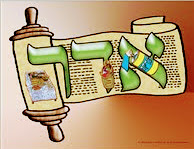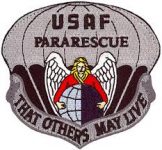The Ten Commandmenst are an integral part of our lives. Many faiths follow most of them as their main rules to live by. Yet, what is accepted as the Ten Commandments may be deceptive, if you do not read the Scriptures. This chapter will answer the following questions: Where are the Ten in the Bible? What are they? Where are they written? Who were they written for? Are the traditional commandments valid? and Are there only ten?
Where are the Ten in the Bible? In Hebrew, the Ten Commandments are written as ‘Asereth HaDevariym, which means the Ten Words. Traditionally, the commandments called the Ten Commandments are in Exodus 20:2-17 and Deuteronomy 5:6-21. However, the Scripture does not call these commandments, issued by YaHVaH, the Ten Commandments (Words). The Ten Words are actually in Exodus 34:14-26. They are a part of the covenant (see v. 10-26) written on the Tablets. “And said YaHVaH to Mosheh, ‘Write to you these words, for according to these words have I sealed with you a covenant and with Yisrael.'” Exodus 34:27. “These words” refers to the previous verses (10-26) where YaHVaH is speaking to Mosheh.
What are they? The Ten Words (simplified) are as follows:
![]() #1. For you shall not prostrate yourselves to another god, for YaHVaH Qanna is His Name, He is a jealous El
#1. For you shall not prostrate yourselves to another god, for YaHVaH Qanna is His Name, He is a jealous El
![]() #2. Cast metal gods you shall not make to you
#2. Cast metal gods you shall not make to you
![]() #3. The Festival of Matzoth you shall observe
#3. The Festival of Matzoth you shall observe
![]() #4. All first-born of a womb (man or animal) are [YaHVaH’s]
#4. All first-born of a womb (man or animal) are [YaHVaH’s]
![]() #5. Six days shall you work and on the seventh you shall desist
#5. Six days shall you work and on the seventh you shall desist
![]() #6. And the Festival of Weeks you shall make to you with the first of the wheat havest and the Festival of Ingathering shall be the changing of the year.
#6. And the Festival of Weeks you shall make to you with the first of the wheat havest and the Festival of Ingathering shall be the changing of the year.
![]() #7. Three times a year shall all your males appear before the Adon, YaHVaH Elohiym of Yisrael
#7. Three times a year shall all your males appear before the Adon, YaHVaH Elohiym of Yisrael
![]() #8. And man shall not covet your land
#8. And man shall not covet your land
![]() #9. You shall not slaughter upon leavening my blood offering
#9. You shall not slaughter upon leavening my blood offering
![]() #10. The beginning produce of your land shall you bring to the House of YaHVaH, your Elohiym
#10. The beginning produce of your land shall you bring to the House of YaHVaH, your Elohiym
Exodus 34:14-26
Interestingly, an eleventh statement appears here. “Do not cook a kid goat in the milk of his mother.” Exodus 34:26b. Since it is attached at the end of verse 26, it is most likely part of #10 because the covenant ends there.
Notice the similarities of these Ten Words to some of the traditional Ten Commandments. What is not traditional? The Feasts are included here in the covenant to be observed. If you are not observing them, then you are not observing the covenant.
Where were they written? In reading Exodus 34, the answer is at Mount Sinai on the second set of Tablets. Verse 1 reads, “. . . and I shall inscribe upon the Tablets the words that were upon the first Tablets, which you shattered.” Verse 28 reads, “. . . and He wrote upon the Tablets the words of the covenant, the Ten Words.”
Who were they written for? The end of Exodus 34:27 reads, “‘ . . . have I sealed with you a covenant and with Yisrael.'” They were written to Mosheh and to all Yisrael [Israel].
Are the traditional commandments valid? Yes. Deuteronomy 5:6-21 is one place the “traditional” Ten Commandments are listed. Deuteronomy 5:22 reads, “These words YaHVaH spoke . . . and He inscribed them on two stone Tablets and gave them to me.” Deuteronomy does not say these are the Ten Commandments or Ten Words, yet they are inscribed on the Tablets. Because they are on the Tablets, the “traditional” Ten Commandments are valid. Verses 1, 29, and 31 describe them as ordinances, decrees, and commandments. The traditional Ten are commandments then, but not the TEN WORDS.
Are there only ten? In reference to the Ten Words, see the paragraph above about the eleventh statement. In the traditional Ten Commandments, more than ten commandments do exist. Because Scripture does not call these traditional commandments the Ten Commandments or Ten Words, this is acceptable. Scripture shows an actual list of Fourteen Commandments. Traditionally, #1 is Exodus 20:2 and Deuteronomy 5:6, yet this is not a commandment at all (see chapter Number 1).
These are the Fourteen Commandments (traditional Ten):
![]() #1. You shall not recognize to you gods of others (see Ten Words #1)
#1. You shall not recognize to you gods of others (see Ten Words #1)
![]() #2. You shall not make to you a carved image (see Ten Words #2)
#2. You shall not make to you a carved image (see Ten Words #2)
![]() #3. You shall not prostrate yourselves to them and not worship them, for I am YaHVaH, your Elohiym, a jealous El (see Ten Words #1)
#3. You shall not prostrate yourselves to them and not worship them, for I am YaHVaH, your Elohiym, a jealous El (see Ten Words #1)
Note: Traditionally, the above 3 are all under commandment #2.
![]() #4. You shall not take the Name of YaHVaH, your Elohiym, to vanity/lie/deceive (Traditionally #3)
#4. You shall not take the Name of YaHVaH, your Elohiym, to vanity/lie/deceive (Traditionally #3)
![]() #5. Remember <Guard>¹ the Shabbat day to sanctify it (Traditionally #4)
#5. Remember <Guard>¹ the Shabbat day to sanctify it (Traditionally #4)
![]() #6. Six days shall you labor . . . but the seventh day is a Shabbath to YaHVaH, your Elohiym, you shall not do any work, you, your son, your daughter, your servant, your maidservant, your animal, and your convert (see Ten Words #5, not in traditional Ten)
#6. Six days shall you labor . . . but the seventh day is a Shabbath to YaHVaH, your Elohiym, you shall not do any work, you, your son, your daughter, your servant, your maidservant, your animal, and your convert (see Ten Words #5, not in traditional Ten)
![]() #7. <You shall remember for you were a servant in the land of Mitzraiyim (Egypt), and YaHVaH, your Elohiym, has taken you out from there with a strong hand>¹ (not in traditional Ten, part of Feast in Ten Words #3)
#7. <You shall remember for you were a servant in the land of Mitzraiyim (Egypt), and YaHVaH, your Elohiym, has taken you out from there with a strong hand>¹ (not in traditional Ten, part of Feast in Ten Words #3)
![]() #8. Honor your mother and your father (Traditionally #5)
#8. Honor your mother and your father (Traditionally #5)
![]() #9. You shall not kill (Traditionally #6)
#9. You shall not kill (Traditionally #6)
![]() #10. You shall not commit adultery (Traditionally #7)
#10. You shall not commit adultery (Traditionally #7)
#11. You shall not steal (Traditionally #8)
#12. You shall not bear false witness (Traditionally #9)
#13. You shall not covet your friend’s house <wife>¹
#14. You shall not covet <desire>¹ your friend’s wife <house, his field>¹, his servant, his maidservant, his ox, his donkey, or anything that belongs to your friend/neighbor (Traditionally #10 for 13 & 14, see Ten Words #8)
Exodus 20:2-17 and Deuteronomy 5:6-21
Note: <words>¹ are only found in Deuteronomy 5
These are the commandments spoken to the nation of Yisrael [Israel] (see Exodus 20:1 and Deuteronomy 5:4) from Mount Sinai and then later recorded on the Tablets. In the Scriptures, YaHVaH does continue to issue commandments and ordinances (judgments) to Mosheh from Exodus 20:22 to Exodus 24:2. Mosheh then told the people of Yisrael all the Words of YaHVaH and wrote them in a Book of the Covenant (Sefer HaBeriyth). Not just the original Ten/Fourteen, but all of the Words from Exodus 20 to 24. Yisrael said: “. . . we will do and we will obey” Exodus 24:7.
The Ten Words are in Exodus 34. The traditional Ten/Fourteen Commandments are in Exodus 20 and Deuteronomy 5. All were written to Yisrael as part of the covenant on Mount Sinai, and all written on the two stone Tablets.
Return to Table of Contents
Continue on to Number 1







